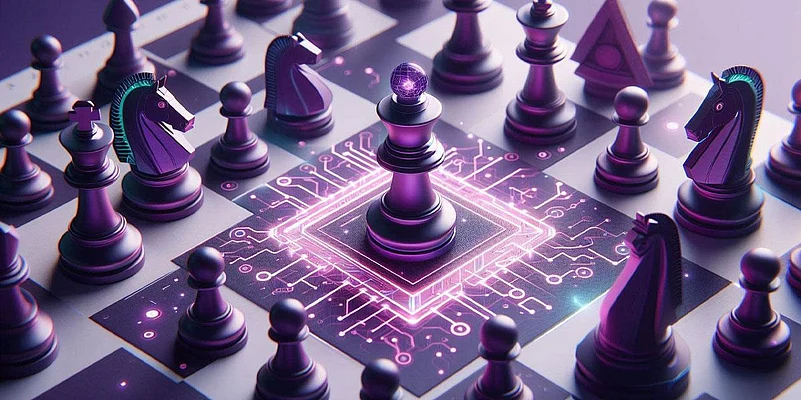Chess, often described as the "game of kings," has evolved significantly since its inception. With the advent of technology, particularly artificial intelligence (AI), the landscape of chess training is experiencing a profound transformation. AI-powered technique analysis is poised to revolutionize how players of all levels train, learn, and improve their game. This article explores the role of AI in chess training, its advantages, and its implications for the Indian chess ecosystem.
The Rise of AI in Chess
AI's influence on chess is not a new phenomenon. The development of chess engines, such as IBM's Deep Blue, which famously defeated world champion Garry Kasparov in 1997, marked a significant milestone in the integration of technology into the game. Since then, advancements in machine learning and neural networks have led to the creation of sophisticated chess engines, such as Stockfish and AlphaZero, which analyze millions of positions and variations in mere seconds.
How AI-Powered Technique Analysis Works
AI-powered technique analysis involves the use of algorithms and machine learning models to evaluate and improve chess techniques. These systems can analyze vast databases of historical games, identify patterns, and provide real-time feedback to players. Key components of AI-powered analysis include:
Position Evaluation: AI engines assess the strength of specific positions, suggesting optimal moves based on statistical data gathered from millions of games.
Game Analysis: Players can upload their games to AI platforms for detailed analysis. The AI identifies mistakes, blunders, and missed opportunities, providing players with actionable insights.
Training Tools: AI-powered training platforms offer personalized exercises tailored to a player's weaknesses and strengths, allowing for focused improvement.
Opening Preparation: AI can analyze opening lines, suggesting various strategies and helping players prepare against specific opponents effectively.
Advantages of AI-Powered Technique Analysis
Enhanced Learning Experience
AI-powered analysis provides a tailored approach to learning, offering players personalized feedback that traditional methods cannot match. Players can study specific positions, understand the nuances of their mistakes, and learn from them immediately. According to a study published in the journal Artificial Intelligence, players using AI-based training methods improved their ratings significantly faster than those relying solely on traditional coaching methods.
Access to Historical Data
AI systems can analyze vast amounts of data, including historical games played by grandmasters and top players. This access allows players to learn from the strategies and techniques employed by the best in the game. By understanding what works and what doesn't, players can refine their own strategies.
Continuous Improvement
AI-powered analysis offers players the ability to continually assess their performance. Unlike traditional training methods that may rely on sporadic coaching sessions, AI provides ongoing feedback, enabling players to track their progress and adjust their training regimens accordingly.
Real-Time Analysis
AI engines can analyze games in real-time, providing instant feedback during online matches or practice sessions. This immediacy helps players recognize mistakes as they occur and learn to make better decisions under pressure.
AI in the Indian Chess Ecosystem
The Indian chess scene has seen remarkable growth over the past few years, with a surge in the number of players and increased participation in international competitions. The introduction of AI-powered technique analysis can significantly enhance this growth and support the development of chess in India.
Growing Popularity of Chess in India
India has a rich chess tradition, and the sport has gained immense popularity, especially after Viswanathan Anand became the first Indian World Chess Champion in 2000. The Chess Federation of India (CFI) has reported a significant increase in the number of registered players, with over 70,000 active players in 2021. The rise of online platforms, especially during the COVID-19 pandemic, has further fueled interest in the game.
Accessibility of AI-Powered Training
AI-powered training tools can democratize access to high-quality chess education. Players from various backgrounds and regions can utilize these tools to improve their skills without needing access to high-profile coaches. This is particularly beneficial in a country like India, where disparities in access to resources exist.
Talent Identification and Development
AI can play a crucial role in identifying and nurturing chess talent in India. By analyzing the performance of young players on online platforms, AI systems can help coaches identify promising talent early. This data-driven approach can streamline training programs and create a more efficient pathway for developing future champions.
Integration with Educational Institutions
Integrating AI-powered chess training into schools and colleges can stimulate interest in the game among students. Educational institutions can adopt AI platforms to provide chess training as part of their curriculum, promoting critical thinking and problem-solving skills among students. The Ministry of Education in India has recognized the importance of chess as an educational tool, which aligns with the growing focus on incorporating technology into learning.
Competitive Advantage
As Indian players increasingly compete on international stages, AI-powered technique analysis can provide them with a competitive edge. By leveraging AI to analyze opponents' strategies and prepare accordingly, Indian players can improve their chances of success in tournaments. The Indian chess community can benefit significantly from adopting this technology to enhance performance and achieve greater recognition on the global stage.
AI-powered technique analysis is revolutionizing chess training, offering players unprecedented opportunities for improvement and personalized learning experiences. The integration of this technology into the Indian chess ecosystem can enhance player development, democratize access to high-quality training, and identify emerging talent.As India continues to invest in its chess infrastructure and promote the sport at various levels, embracing AI will be crucial for nurturing the next generation of chess champions. The future of chess training lies in the seamless integration of technology, tradition, and talent, paving the way for a stronger presence in the global chess arena. With AI as a valuable ally, Indian athletes can aspire to reach new heights in their chess careers.























